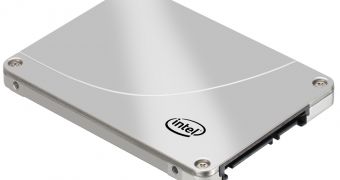Intel will soon update its Rapid Storage Technology (RST) software suite to version 11.5 which, among other features, will also bring support for the TRIM command when using two or more SSDs setup to work in a RAID array.
The TRIM command was specially designed to inform solid-state drives which blocks of data are no longer considered in use and can be wiped internally.
This eliminates garbage collection overhead, that would otherwise significantly slow down future write operations and, subsequently, have a huge impact on the write performance of the drive.
Despite being particularly useful for most SSDs, so far the TRIM command isn’t available when the solid state drives are installed inside a RAID array.
The only exception to this rule is a series of OCZ enterprise drives that feature the company’s VCA (Virtualized Controller Architecture) technology, but Intel’s chipsets will join the party soon enough with the release of the 11.5 version of the RST driver.
According to VR-Zone, the new 11.5 driver will not only support the new Cougar Point (6-Series) and the upcoming Panther Point (7-Series) Intel chipsets, but also the Ibex Peak (5-Series) PCH controllers, as well as the-several-years old Eagle Lake (3-Series) and Montevina (4-Series) chipsets.
These include the popular ICH9M, ICH9ME, ICH10R, ICH10DO and ICH10D south-bridges that were used by many LGA 775 and LGA 1366 motherboards.
RST 11.5 is expected to formally debut in the first half of 2012 (an alpha version is reportedly already available), while in Q3 of 2012 Intel will release the 11.6 version that brings full support for Windows 8.
In addition to enabling TRIM for RAID volumes, Intel’s new RST drivers will also bring a Verify and Repair Scheduler, enabling users to "schedule V&R operations on daily, weekly or monthly basis," which should help lower RAID volume build times.
Other new features include "UEFI pre-OS Solution" support, new CLI 32-bit and 64-bit utilities to replace the old RAIDCfg32 and RAIDCfg64 command line utilities, as well as a bunch of other optimizations and performance enhancements.

 14 DAY TRIAL //
14 DAY TRIAL //